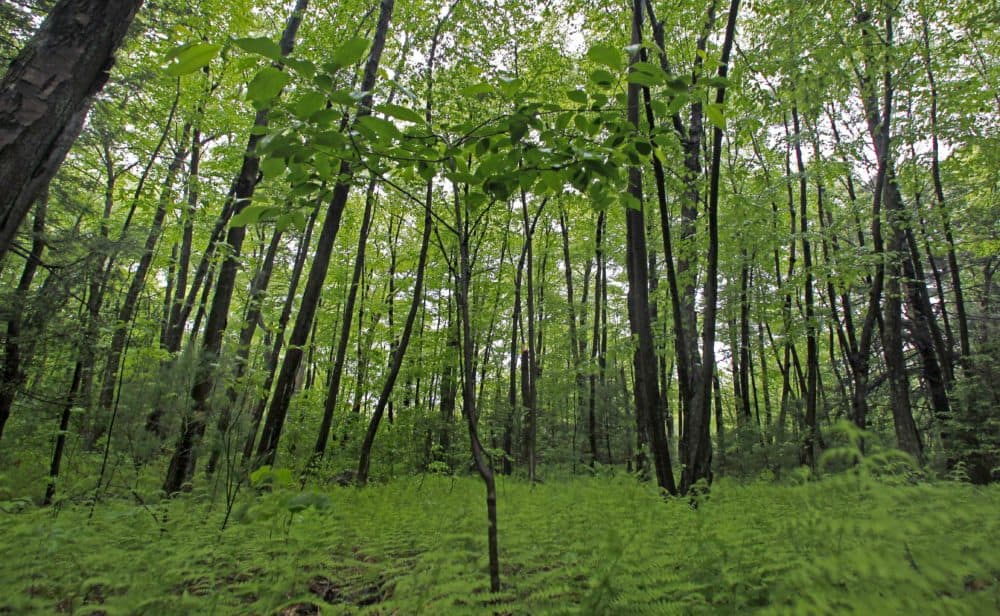Advertisement
State law now requires development of conservation land be replaced with newly protected land

Gov. Charlie Baker signed into law a bill environmental activists have supported for two decades known as the Public Lands Preservation Act. The new law aims to guarantee that the total area of public parks and conservation land doesn’t decrease.
Massachusetts already protects conservation land designated under Article 97 of the state constitution through a policy called “No Net Loss.” Under the policy, if those public lands are developed, other land of equal natural resource value must be set aside to be protected.
With the new law, the process becomes obligatory and includes more requirements to evaluate whether developing that land is really the best option.
“It is a tool for meeting the climate crisis. We need open space to mitigate against flooding. We need it to absorb carbon,” said representative Ruth Balser, a Democrat from Newton and co-sponsor of the bill.
Balser said that the law also requires notifying the public and the Environment Affairs Office before a town, a city or the state wants to change the status of protected land. Before, the process was done mainly through the legislature, which was a requirement instituted by Article 97.
“What's good about that is that it would give the Environmental Office the opportunity to work with communities to help them find alternatives,” she said. The law requires an analysis of alternatives mapping out construction of the same project without compromising conservation land.
Balser said that she had recently learned that in some cases developers made a cash payment, but it's unclear if the funds were ever used to purchase replacement land. The law introduces conditions to any cash payments, requiring the purchase of equivalent replacement land within three years.
Robb Johnson, executive director of the Massachusetts Land Trust Coalition, who has been advocating for the bill, said that communities have ongoing needs to build, but that constructing on conservation land shouldn’t always be allowed.
He pointed out he has seen conservation land converted into roads, schools, and even parking lots. For example, he said a land exchange at the Blue Hills reservation took conservation land to create a parking lot for a nearby restaurant.
“If we created parks and conservation land specifically for that purpose," he said, "we shouldn't look at them as a piggy bank to raid every time we need to build something new.”
